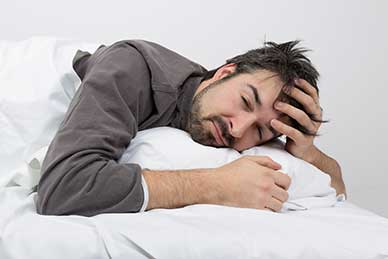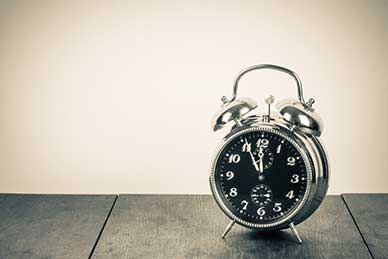Many people suffer from seasonal affective disorder (SAD) and don’t even realizing it. You may have felt a touch of the winter blues but quickly recovered with a vacation to somewhere sunny. Others live all fall and winter with a mild case of the “winter blahs” without realizing that this can have an effect on their physical health. However, for many people, the winter blues are a pervasive health problem. They not only suffer from a serious case of the blahs but from persistent depression and other physical and mental health issues.
What Is Seasonal Affective Disorder?
Many people in North America and Northern Europe suffer from seasonal affective disorder, also known as SAD, without even knowing it. A lack of sunlight can affect our lives in a variety of ways. According to some researchers, many people feel the effects of low levels of light. While some feel the classic symptoms of depression, others experience seasonal affective disorder differently. You may feel more tired and fatigued, more anxious, or even be more prone to contagious illnesses.
Not getting enough sunlight in the fall and winter can impact your health in a variety of ways. Many people feel that they are more fatigued in the winter and get tired more easily. Others find that they have a larger appetite, leading to weight gain, or even that they are more likely to catch contagious illnesses such as colds and flus. Human health depends on having a balanced circadian rhythm, and having a balanced circadian rhythm depends on having healthy and appropriate levels of melatonin.
Sunlight and Human Health
Although we do not realize it, the sun affects our health in a variety of ways. Blind people who cannot experience sunlight are a good example of these effects. When our eyes perceive light, they send messages to the suprachiasmatic nucleus of the brain, which in turn sends messages to the pineal gland. These neurological messages determine whether we release sleep-enhancing hormones such as melatonin or biochemicals that encourage wakefulness such as cortisol. Without functioning retinas, the bodies and brains of blind people are left without a compass.
Many blind people suffer from seasonal affective disorder all year long. Their retinas do not sense light so they are left with no way to coordinate their circadian rhythms. This can lead to dysregulation of sleep and the according depression and fatigue, but also physical effects. Our bodies are created to be attuned to the light and dark cycles of our environments; without a way to perceive these cycles, we are left quite literally in the dark.
Combating SAD
 Although seasonal affective disorder is common, it is not something people need to tolerate without treatment. There are many ways to beat the winter blues. Stock up on vitamin D supplements so you don’t lack this critical nutrient. Make an effort to get outside and enjoy the winter season, even if you find it hard to get moving. Get plenty of exposure to light, even if it isn’t the light of the sun.
Although seasonal affective disorder is common, it is not something people need to tolerate without treatment. There are many ways to beat the winter blues. Stock up on vitamin D supplements so you don’t lack this critical nutrient. Make an effort to get outside and enjoy the winter season, even if you find it hard to get moving. Get plenty of exposure to light, even if it isn’t the light of the sun.
In addition, there are natural therapies that have been found to decrease seasonal affective disorder. Exposing yourself to natural light during the day and taking melatonin at night can resolve many of the symptoms. In fact, taking melatonin at night in itself has been found to correct around a third of the symptoms associated with SAD.
When our eyes do not perceive the right wavelength of light, it is easy for melatonin production to also get off track. Taking melatonin before bed gives a clear signal, that now is the time for sleep. Light therapy during the day can also help, by sending a clear message that these hours are meant for wakefulness. In winter, light levels are low enough that it is easy for our brains to get confused about when to sleep and when to wake. Correcting these crossed signals with well-timed light and melatonin may alleviate many of the symptoms associated with seasonal affective disorder.
Many people suffer from seasonal affective disorder, or at least the winter blues, without even realizing it. However, there is no need to power through these symptoms: Many therapies, including light therapy and melatonin, have been found to alleviate them. Including light therapies, such as using a dawn-simulating alarm clock, and supplementing with melatonin are ways you can help keep your circadian rhythm on track. In many cases, depression is just the first obvious symptom that something is wrong with your whole body health.
 In adulthood, the ideal work schedule mainly depends on your unique circadian rhythm, which research has found is primarily
In adulthood, the ideal work schedule mainly depends on your unique circadian rhythm, which research has found is primarily  We do not currently know the ideal work schedule for people over the age of 65 because working past this age is a relatively new phenomenon. Humans were once lucky to live to this age, but now around
We do not currently know the ideal work schedule for people over the age of 65 because working past this age is a relatively new phenomenon. Humans were once lucky to live to this age, but now around  The role of your gut flora in maintaining a healthy circadian rhythm and sleep is one of the most surprising connections to have sprung from modern chronobiology studies We already knew that these bacteria are important players in health, synthesizing nutrients and helping to break food particles in our diets. However, new research is finding that your mental health, autoimmune activity, and, yes, even sleep may depend in part on having a health gastrointestinal tract.
The role of your gut flora in maintaining a healthy circadian rhythm and sleep is one of the most surprising connections to have sprung from modern chronobiology studies We already knew that these bacteria are important players in health, synthesizing nutrients and helping to break food particles in our diets. However, new research is finding that your mental health, autoimmune activity, and, yes, even sleep may depend in part on having a health gastrointestinal tract. Researchers studied
Researchers studied  In medications, as in comedy, timing may indeed be an important factor in how we respond to treatments that both make us more comfortable and extend our lifespans.
In medications, as in comedy, timing may indeed be an important factor in how we respond to treatments that both make us more comfortable and extend our lifespans.  There is significant research maintaining healthy levels of melatonin through supplementation and other means may be helpful for many migraine sufferers. Melatonin has been shown to be
There is significant research maintaining healthy levels of melatonin through supplementation and other means may be helpful for many migraine sufferers. Melatonin has been shown to be